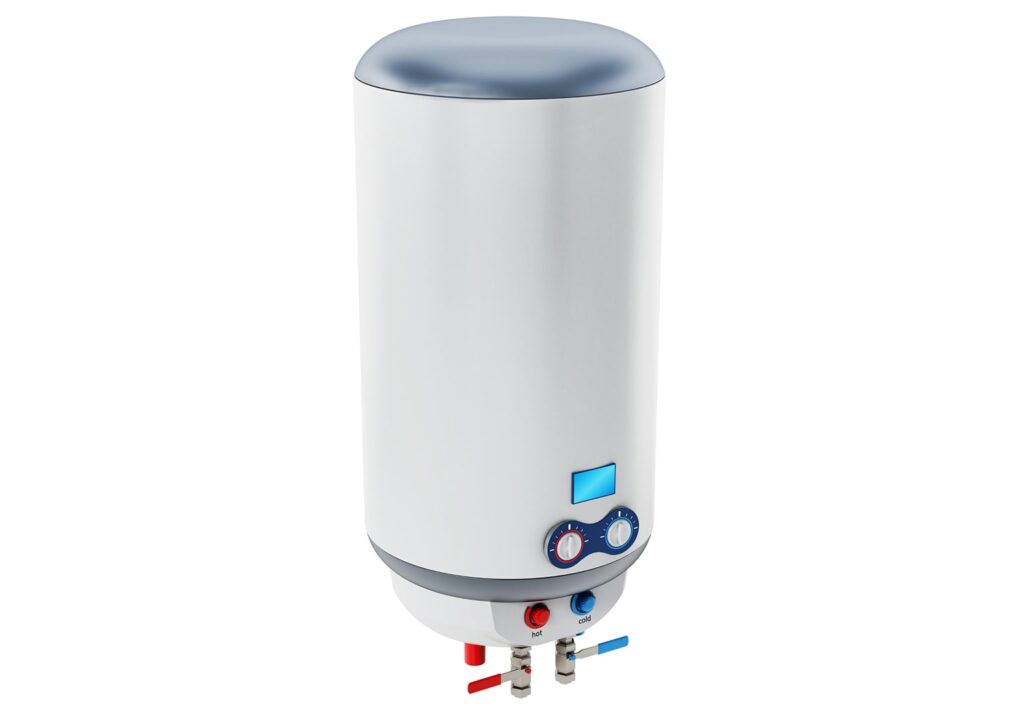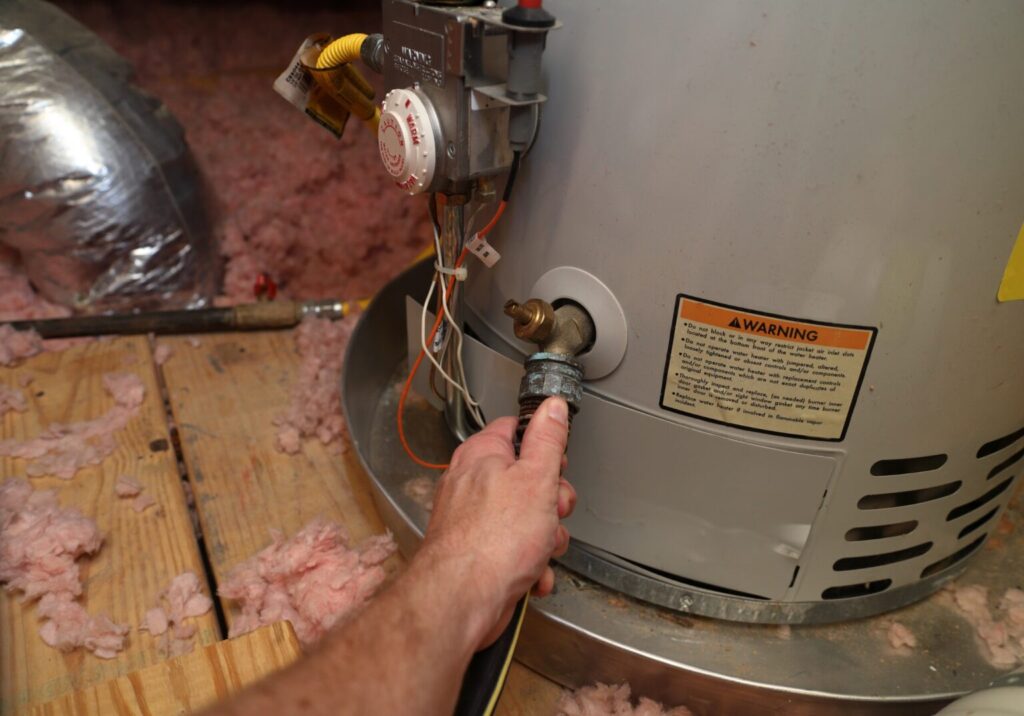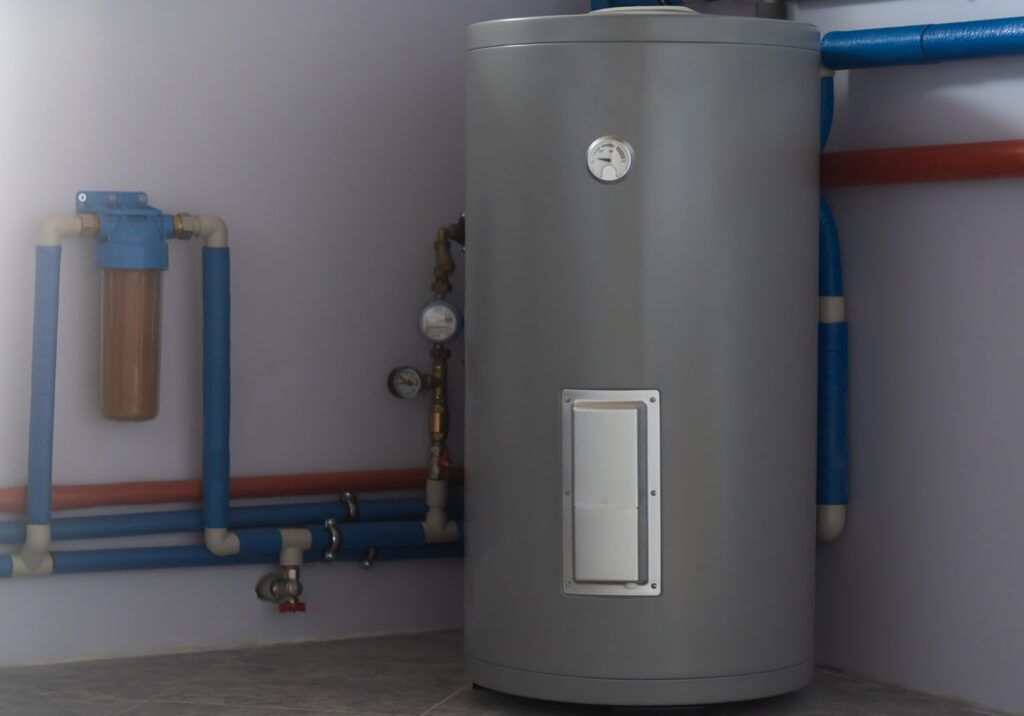Hot water is an essential part of modern life. Without it, it would be difficult to perform daily tasks such as showering, washing clothes, and doing dishes. However, water heaters can break down and malfunction over time, leading to cold showers and other inconveniences.
Water Heater Warning Signs!
If your water heater is old, rusty, or malfunctioning, it is essential to seek the services of a professional plumber. Not only can an outdated water heater lead to cold showers and other inconveniences, but it can also be a safety hazard. Faulty water heaters can leak, leading to water damage and mold growth in your home or business. Additionally, outdated water heaters can be inefficient and costly to operate, leading to higher energy bills.
Tankless Water Heaters:
Tankless water heaters are becoming increasingly popular due to their energy efficiency and small size.
Tankless water heaters, also known as on-demand water heaters, provide hot water only when needed. Unlike traditional tank-style water heaters that store and constantly heat a large volume of water, tankless water heaters heat water directly as it flows through the unit. This results in less energy waste and lower utility bills.
Tankless water heaters are available in both electric and gas models, with gas models typically providing higher flow rates and better performance. They also come in various sizes and capacities to suit different household or commercial needs.
In addition to energy savings, tankless water heaters offer other benefits such as longer lifespan, lower risk of flooding or water damage, and space-saving design. However, they may require a higher upfront investment than traditional water heaters, and installation may require adjustments to gas or electrical systems.
Overall, tankless water heaters are a great option for those looking to save on energy costs, increase their home or commercial space efficiency, and have an endless supply of hot water.

Tankless Water Heaters:
Sizes: Electric units 10-inch high to 7-inch. Gas-fired units 30-inch by 20-inch.

Traditional Tank Water Heaters:
Sizes: 20 to 80 gallons. Most common sizes being 40 and 50 gallons.
Traditional Tank Water Heaters:
Traditional tank water heaters are the most common type of water heater and are reliable and easy to install. These tank water heaters are frequently used in homes and businesses. They store and constantly heat a large volume of water, which is then ready for use when needed. They store and constantly heat a large volume of water, which is then ready for use when needed.
Traditional tank water heaters come in various sizes, typically ranging from 20 to 80 gallons, with the most common sizes being 40 and 50 gallons. The size needed depends on the household or commercial hot water demand, with larger tanks being necessary for larger households or businesses.
One downside of traditional tank water heaters is that they can waste energy by continuously heating the stored water, even when it’s not being used. They also have a limited supply of hot water, which can run out if the demand exceeds the tank’s capacity.
Despite these drawbacks, traditional tank water heaters are relatively affordable and easy to install, making them a popular choice for many. Regular maintenance, such as flushing the tank and replacing the anode rod, can also help prolong the lifespan of a traditional tank water heater.
Hybrid Water Heaters
The hybrid water heaters combine the benefits of tankless and traditional tank water heaters, making them an efficient and cost-effective option for many homeowners and businesses.
Hybrid water heaters, also known as heat pump water heaters, are a newer technology that combines the benefits of tank and tankless water heaters. Like tank water heaters, they store and constantly heat a large volume of water, but they use a heat pump to transfer heat from the air to the water.
Hybrid water heaters are known for their energy efficiency, with some models using up to 60% less energy than traditional tank water heaters. They also provide a virtually endless supply of hot water, like tankless water heaters.
Hybrid water heaters are available in various sizes, typically ranging from 50 to 80 gallons, and may be more expensive than traditional tank water heaters. However, their energy savings can help offset the initial investment.
Another benefit of hybrid water heaters is their quieter operation, as the heat pump compressor is located outside or on top of the unit. Maintenance requirements are also generally low, with occasional filter cleaning recommended.
Overall, hybrid water heaters are a great option for those looking to save on energy costs while still having a reliable supply of hot water.

Hybrid Water Heaters
Sizes: 50 to 80 gallons
Water Heater Repair
If your water heater is leaking, producing smelly water, or failing to produce hot water, it may be time to seek the services of a professional plumber. A leaking water heater can be a serious issue and can lead to water damage and mold growth in your home or business.
Additionally, smelly water can be a sign of bacteria growth, which can be harmful to your health. A professional plumber can diagnose the issue and provide a solution that fits your needs and budget.
Contact Us
Bear Creek Plumbing is here for your hot water needs whether its a new installation or an emergency service. We know that hot water is an essential part of modern life. It is important to have a reliable and efficient water heater in your home or business.
If your water heater is old, rusty, or malfunctioning, it is essential to seek the services of a professional plumber. Additionally, it is important to choose the right type of water heater for your needs and budget. With the help of a professional plumber, you can keep the hot water flowing and enjoy the benefits of modern plumbing technology.
